Fog poem by Carl Sandburg
The fog comes
on little cat feet.
It sits looking
over harbor and city
on silent haunches
and then moves on.
Fog poem by Carl Sandburg
The fog comes
on little cat feet.
It sits looking
over harbor and city
on silent haunches
and then moves on.
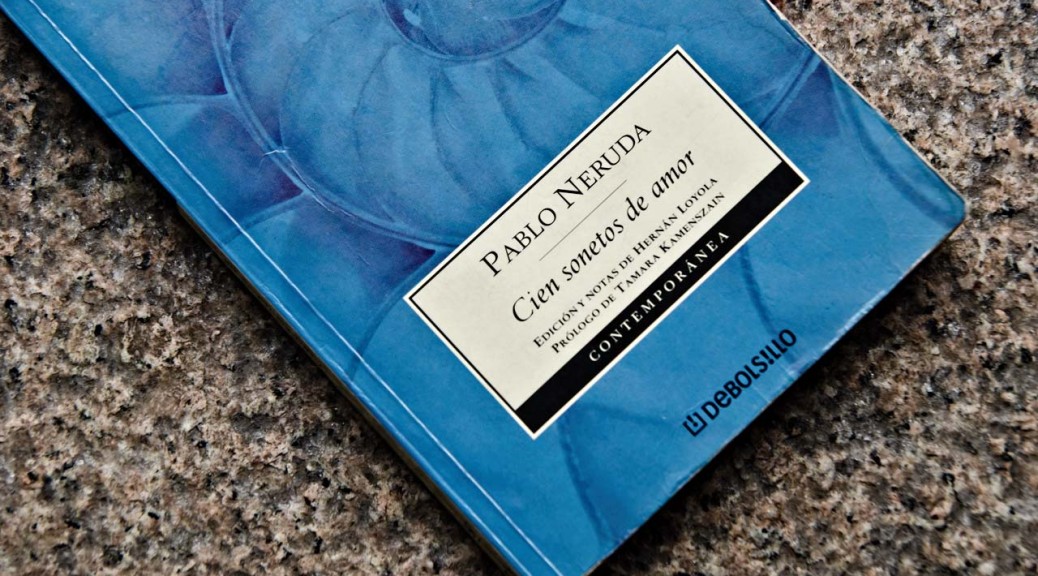
Czechoslovakia/Austria-Hungary (poetry)
Deštník z Picadilly
UK (novel/poetry/drama)
Lord of the Flies, The Inheritors, Free Fall
Colombia (novel/short story)
Cien años de soledad, Crónica de una muerte anunciada, El coronel no tiene quien le escriba
UK/Bulgaria (drama/novel/essay)
Poland (poetry/essay)
Japan (novel)
Work: 個人的な体験 A Personal Matter, 万延元年のフットボール The Silent Cry
US (novel)
Work: The Bluest Eye, Beloved, Song of Solomon
Santa Lucia (poetry/drama)
Work: Dream on Monkey Mountain, Omeros,
South Africa (novel/short story)
Work: The Conservationist, Burger’s Daughter, July’s People
Mexico (poetry/essay)
Work: Piedra de sol, Salamandra, El laberinto de la soledad, Vislumbres de la India
Germany (novel, drama, graphic design) Nazi Germany
Work: The Tin Drum, Cat and Mouse, Dog Years (Danzig Trilogy)
Portugal (novel)
Work: Memorial do Convento (Baltasar and Blimunda), O Evangelho Segundo Jesus Cristo (The Gospel According to Jesus Christ), Ensaio sobre a cegueira (Blindness), História do Cerco de Lisboa (The History of the Siege of Lisbon)
Italy (drama)
Work: Guerra di popolo in Cile, Non Si Paga! Non Si Paga! (Can’t Pay? Won’t Pay!, Il Papa e la strega (The Pope and the Witch)
Poland (poetry)
Work: Love At First Sight poem (Watch Three Colors: Red), Here, View With a Grain of Salt: Selected Poems
UK/Ireland (poetry)
Work: Beowulf 1999 translation, Death of a Naturalist, The Spirit Level
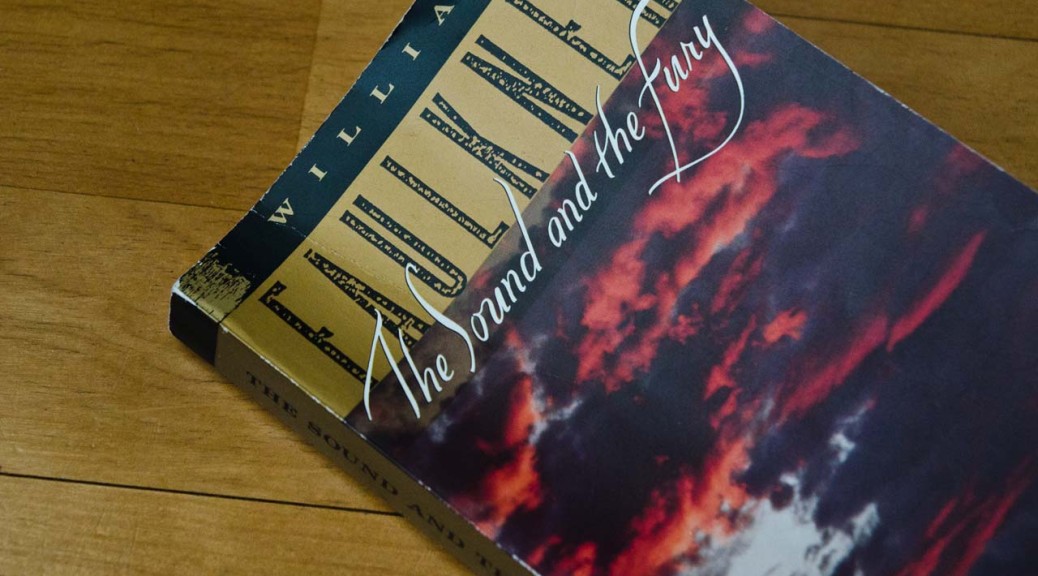
Luster “If you don’t hush, you know what I going to do. I going to eat that cake all up. Eat them candles, too. Eat all them thirty three candles. Come on, les go down to the branch. I got to find my quarter.” p. 4
“”Where’d you get a quarter, boy. Find it in white folks’ pocket while they aint looking.”
“Got it at the getting place.” Luster said. “Plenty more where that one come from. Only I got to find that one. Is you all found it yet.”
“I aint studying no quarter. I got my own business to tend to.”” p. 14
“The bones rounded out of the ditch, where the dark vines were in the black ditch, into the moonlight, like some of the shapes had stopped.” p. 33-34
“Caddy got the box and set it on the floor and opened it. It was full of stars. When I was still, they were still. When I moved, they glinted and sparkled. I hushed.” p. 41
Et ego in arcadia (Et in arcadia ego)p. 44
“And one evening, when they was about a dozen them bluegum chillen running around the place, he never come home. Possum hunters found him in the woods, et clean. And you know who et him. Them bluegum chillen did.” p. 69
“You’ve been running a long time, not to’ve got any further off than mealtime, Jason said.” p. 71
“Then he went to the window and looked out. He came back and took my arm. Here she come, he said. Be quiet, now. We went to the window and looked out. It came out of Quentin’s window and climbed across into the tree. We watched the tree shaking. The shaking went down the tree, then it came out and we watch it go away across the grass. Then we couldn’t see it.” p. 74
“I give it to you not that you may remember time, but that you might forget it now and then for a moment and not spend all your breath trying to conquer it. Because no battle is ever won he said. They are not even fought. The field only reveals to man his own folly and despair, and victory is an illusion of philosophers and fools.” p. 76
“I passed the jeweler’s window, but I looked away in time. At the corner two bootblacks caught me, one on either side, shrill and raucous, like blackbirds. I gave the cigar to one of them, and the other one a nickel. Then they let me alone. The one with the cigar was trying to sell it to the other for the nickel.” p. 83
“He was going bald. There was a glass in his eye–a metal tube screwed into his face. I went in.
The place was full of ticking, like crickets in September grass, and I could hear a big clock on the wall above his head. He looked up, his eye big and blurred and rushing beyong the glass.” p. 83
“There were about a dozen watches in the window, a dozen different hours and each with the same assertive and contradictiory assurance that mine had, without any hands at all. Contradiction one another.” p. 85
“And all that day, while the train wound through rushing gaps and along ledges where movement was only a laboring sound of the exhaust and groaning wheels and the eternal mountains stood fading into the thick sky,” p. 88
“The ship went through the bridge, moving under bare poles like a ghost in broad day, with three gulls hovering above the stern like toys on invisible wires.” p. 89-90
***”It twinkled and glinted, like breathing, the float slow like a breathing too, and debris half submerged, healing out to the sea and the caverns and the grottoes of the sea.” p. 90
“You can feel noon. I wonder if even miners in the bowels of the earth.” p. 104
“Father said that a man is the sum of his misfortunes. One day you’d think misfortune would get tired, but then time is your misfortune Father said.” p. 104
“I could still see the smoke stack. That’s where the water would be, healing out to the sea and the peaceful grottoes.” p. 112
“Only our country was not like this country. There was something about just walking through it. A kind of still and violent fecundity that satisfied even bread-hunger like. Flowing around you, not brooding and nursing every niggard stone.” p. 113
“The bridge was of gray stone, lichened, dappled with slow moisture where the fungus crept. Beneath it the water was clear and still in the shadow, whispering and clucking about the stone in fading swirls of spinning sky.” p. 115
“The arrow increased without motion, then in a quick swirl the trout lipped a fly beneath the surface with that sort of gigantic delicacy of an elephant picking up a peanut.” p. 116-117
***”Then they talked about what they would do with twenty-five dollars. They all talked at once, their voices insistent and contradictory and impatient, making of unreality a possibility, then a probability, then an incontrovertible fact, as people will when their desires become words.” p. 117
“He leaned on the rail, looking down at the trout which he had already spent, and suddenly the acrimony, the conflict, was gone from their voices, as if to them too it was as though he had captured the fish and bought his horse and wagon, they too partaking of that adult trait of being convinced of anything by an assumption of silent superiority.” p. 118
“The street turned again. I could see the white cupola, the round stupid assertion of the clock.” p. 124
“took up the coins and found two coppers in her apron and gave them to me. I handed them to the little girl. Her fingers closed about them, damp and hot, like worms.” p. 126-127
“She looked at me. She chewed quietly and steadily; at regular intervals a small distension passed smoothly down her throat. I opened my package and gave her one of the buns. “Good bye,” I said. p. 129
“Them furriners. I cant tell one from another. You might take her across the tracks where they live, and maybe somebody’ll claim her.” p. 130
“I don’t know
outside the gray light the shadows of things like dead
things in stagnant water” p. 157
“I went to the diningroom. Quentin was sitting with her head bent. She had painted her face again. Her nose looked like a porcelain insulator.” p. 257
“She had been a big woman once but now her skeleton rose, draped loosely in unpadded skin that tightened again upon a paunch almost dropsical, as though muscle and tissue had been courage or fortitude which the days or the years had consumed until only the indomitable skeleton was left rising like a ruin or a landmark above the somnolent and impervious guts, and above that the collapsed face that gave the impression of the bones themselves being outside the flesh, lifted into the driving day with an expression at once fatalistic and of a child’s astonished disappointment, until she turned and entered the house again and closed the door.” p. 265-266
“saw the old woman in her quilted dressing gown at the head of the stairs, calling her name with machinelike regularity.” p. 270
“It was not the bottle which Mrs Compson wanted, however, and clutching it by the neck like a dead hen Dilsey went to the foot of the stairs and looked upward.” p. 270
“She made no further move, but though she could not see her save as a blobby shape without depth, Mrs Compson knew that she had lowered her face a little and that she stood now like cows do in the rain, holding the empty water bottle by its neck.” p. 272
“The window was open. A pear tree grew there, close against the house. It was in bloom and the branches scraped and rasped against the house and the myriad air, driving in the window, brought into the room the forlon scent of the blossoms.” p.
“The Ben wailed again, hopeless and prolonged. It was nothing. Just sound. It might have been all time and injustice and sorrow become vocal for an instant by a conjunction of planets.” p. 288
“Two tears slid down her fallen cheeks, in and out of the myriad coruscations of immolation and abnegation and time.” p. 295
“But he bellowed slowly, abjectly, without tears; the grave hopeless sound of all voiceless misery under the sun.” p. 316
In Xanadu did Kubla Khan
A stately pleasure-dome decree :
Where Alph, the sacred river, ran
Through caverns measureless to man
Down to a sunless sea.
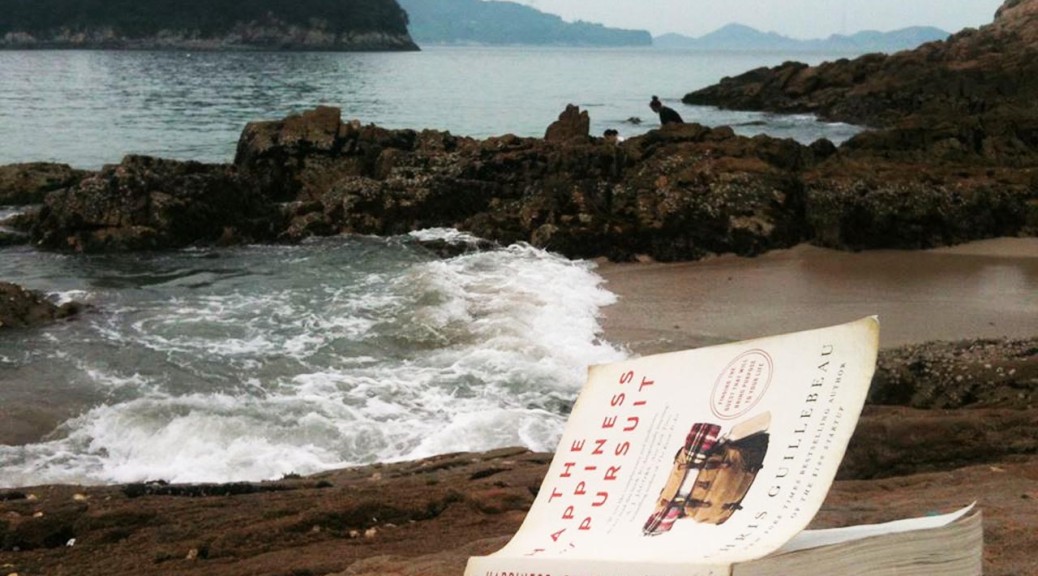
“If I made a list and worked on the list, a big goal–even a huge goal–seemed feasible.” p.24

The Grapes of Canaan (c. 1896-1902) by James Tissot. Although the spies brought back a cluster of grapes so large that it took two men to carry it (Numbers 13:23), only two of the twelve brought back a good report of the land.
Story in the Torah about the 12 spies investigating the land of Canaan. p. 39 (from the Book of Numbers)
“When a person is really happy they don’t have to tell people about it. It just shows.” p. 45
“In an interview for Rolling Stone, Bob Dylan was asked about the word calling…
“Mine, Not any different than anybody else’s. Some people are called to be a good sailor. Some people have a calling to be a good tiller of the land. Some people are called to be a good friend. You have to be the best at whatever you are called at. Whatever you do. You ought to be the best at it–highly skilled. It’s about confidence, not arrogance. You have to know that you’re the best whether you anybody else tells you that or not.”” p. 47
Amelia Earhart might have put it best: “When a great adventure is offered, you don’t refuse it.”” p. 49
“In the words of a great Bob Dylan song, “He not busy being born is busy dying,” and perhaps some of us are busier than others.” p. 58
“As much as it sounds trite to “live like you’re ying” or “live every day as if it were your last,” that’s exactly what many people obsessed with a quest do.” p. 58
“John wrote in his journal: “How interesting it is that men seldom find the true value of life until they are faced with death.”” p. 59
Book: Birding in Borrowed Time by Phoebe Snetsinger
Dekker’s solo circumnavigation route 2010-2012. Via wikimedia.
“learn to become comfortable with failure… ” p. 74
“become more bold in making requests.” p. 75
“You must believe that your quest can be successful, even if no one else does.” p. 80
“I didn’t want to mention I was a writer. (In many countries, “writer” means “journalist,” and journalists are treated with suspicion in places without a free press.” p. 83
“What people say about an adventure or quest that involves perceived risk:
Succesful Outcome: brave, courageous, confident
Failed Outcome: stupid, risky, naive, arrogant” p. 84
Chris McCandless’ letter published in Into The Wild “The basic core og a man’s living spirit is his passion for adventure. The joy of life comes from out encounters with new experiences, and hence there is no greater joy than to have an endlessly changing horizon, for each day to have a new and different sun.” p. 85
“Do one thing every day that scares you.” (Eleanor Roosevelt) p. 87
Book: The Flinch by Julien Smith “breaking your programming requires a single moment of strength.” p. 97
“Documenting Your Quest… Keeping a scrapbook (either a traditional one or a digital one)” p. 99
“If you want to prioritize adventure but can’t find the time, something’s got to give.” p. 100
“I spent the better part of a week every December reviewing the year that had just passed and planning ahead for the next one. The quest to visit every country came about only after I spent a lot of time thinking through the logistics… The quest was successful because I’d thought it through–not in spite of it.” p. 108
Travel to every country in the world “I guessed that it would cost somewhere in the neighborhood of $30,000, and that it would take approximately five to seven years to complete.” p. 108
“How much time? How much money? What might those other variables be? Let’s figure it out.” p. 109
“Visit every country in Africa (the most challenging continent, containing more than 50 countries).” p. 110
“Since it would be a ten-year journey, I couldn’t stay excited on a daily basis by thinking about the finish line. That’s when subgoals proved helpful.” p.110
costs
“Goal:___
Time: __
Money: __
Other Costs:__
Unknown:__” p. 111
“Scott Young, who taught himself the four-year MIT computer science curriculum in one year, didn’t just jump into the project at first thought. “I spent nearly two months preparing the curriculum before starting my challenge,” he told me, “including a one-week pilot study with a single class… He considered the rest of the curriculum and visualized which parts would be more challenging. By the end og the pilot study, he felt his head was in the game and that he was ready to strike out on the full, yearlong commitment.” p. 112
Poem: “Ithaca” by Constantine Cavafy
“Always keep Ithaca on your mind.
To arrive there is your ultimate goal.
But do not hurry the voyage at all.
It is better to let it last for many years;
and to anchor at the island when you are old,
rich with all you have gained on the way,
not expecting that Ithaca will offer you riches.” p. 115
“The review begins with a set of journaling exercises, focused on two questions:
What went well this year?
What did not go well this year?” p. 115
“I then set a number of goals based on specific categories. Your own categories may vary, but some of mine include:
Writing
Business
Friends and Family
Service
Travel
Spiritual
Health
Learning
Financial (Earning)
Financial (Giving)
Financial (Saving)” p. 116
outcome statement p. 117
“built a new small business that supports my primary writing goals.” p. 117
“If you’re predisposed to overthink, the answer is simple: Just do it.” p. 119
“His best advice has now been simplified: “Pick a departure date. Start saving. Get a bike, tent, and sleeping bad. And go.”” p. 119
“All students sign a pledge to speak only the new language they are learning for the entire time they are there, including evenings and weekends.” p. 119
To pursue your goal: “Get specific. Be sure to clearly understand the time, money, and other costs before you begin.” p. 121
The Personal Annual Reports of Nicholas Felton “This project is more about recording than influencing behavior. As Nicholas explained, when he started compiling the information each year, he felt inspired to “say yes” to activities he might normally decline.” p. 125
“If your primary goal is to write a book, produce a documentary, or otherwise publicize your quest, maybe it’s more of a career move. There’s nothing wrong with doing something for your career–but it’s not really a quest, since a quest requires sacrifice and uncertainty.” p. 128 [contradictions by the author? his own personal definition of quest]
“If you set specific goals, you’ll know exactly when you’ve accomplished them.” p. 133
“As much as possible, you should also ignore fear when you write your life list. Fear of failure, and even the fear of success, holds us back from attempting many of the things we secretly wish for.” p. 133
“Goal:
Deadline:
Next Step: ” p. 135
“Experience produces confidence, and confidence produces success.” p. 140
Martin Parnell: biked Cairo to Cape Town p. 144
MIT course work online p. 147
“These people are all about making things and sharing them with the world, over and over.” p. 151
Seth Godin: “The lesson, as he explains it: “If I fail more than you do, I win. Built into this notion is the ability to keep playing. If you get to keep playing, sooner or later you’re gonna make it succeed.” p. 155
Elise Blaha “She clearly defines her projects, and she breaks them down into multiple parts. When she has success with one project she applies the same format to others. The medium doesn’t need to be the same, she told me, but the process for working on them can still be…One autumn she baked forty different kinds of bread.” p. 158
Seinfeld told the New York Times. “I read an article a few years ago that said when you practice a sport a lot, you literally become a broadband: the nerve pathway in your brain contains a lot more information. As soon as you stop practicing, the pathway begins shrinking back down.” p. 162
“When I woke up in the morning I immediately thought about what I’d work on for the next few hours. At night I’d go to bed thinking about how I could improve the next day.” p. 163
John and Nancy Vogel and their twin boys: Alaska to Argentina on a bike “They were especially motivated by the goal of becoming the youngest travelers to cross the America’s by bicycle. An improvised rule specifying “twenty miles per cookie” didn’t hurt, either.” p. 172
Gothic Symphony by Havergal Brian
****Steven Pressfield: “The most important thing about art is to work. Nothing else matters except sitting down every day and trying.” p. 196
“Even the most expensive parts of the world can be reached for $2,500 or less. If that sum seems exorbitant, just think of it as $2 a day for three and a half years, or a bit less than $7 a day over one year.” p. 198-199
“Juno Kim… originally took her savings with her and planned to live off that money as long as it lasted. But four years and twenty-four countries later, she’s actually increased her savings, thanks to her work as freelance writer and photographer.” p. 200
Ron Avitzur (graphing calculator) “I wasn’t a big spender… But it also helped that we worked all the time.” p. 200
“If you’re going to do something outlandish, there are a probably a lot of people who would like to do it, too, but don’t for various reasons.” p. 201
Costs of several quests featured in the book (p. 202-203)
“How long will it take me to save this amount of money?
Is there any other way to get the money (crowdfunding, selling something, extra work…?
Do I need to wait to start until I have all the money?
If getting the money will be difficult, is there a wat to reduce the cost?” p. 204
“Selected Savings Rates:
$25/day = $9,125/year
$10/day = $3,650/year
$5/day = $1,825/year
$2/day = $730/year” p. 204
“John Lasseter, one of the founders of Pixar, says that “Every one of our films was the worst motion picture ever made at one time or another.” … As soon as they identify the mistakes, they’re able to fix them–but the point is to not shy away from the initial failure.” p. 213
“some people are simply obsessed with failure–or at least they have a general expectation that a new project will more likely meet with failure than success.” p. 214
“Nothing worth doing is ever easy.” p. 214
“Short-term relief and long-term happiness can be very different things. ” p. 215
“Regret is what you should fear the most. If something is going to keep you awake at night, let it be the fear of not following your dream. Be afraid of setting.” p. 220
“If you’re going to worry about something, worry about the cost of not pursuing your dream.” p. 222
Nate Damm “I’m definitely not motivated by achievement. I just do what I like every day, and good things seem to happen as a result.” p. 228
Once Upon a Galaxy by Josepha Sherman
“Don’t try to explain everything, but do tell a few good stories.” p. 246
The Phantom Tollbooth by Norton Juster
John Stuart Mill and the “fleeting sense of happiness” “Suppose that all your objects in life were realized… the whole foundation on which my life was constructed fell down. All my happiness was to have been found in the continual pursuit of this end. The end had ceased to charm, and how could there ever again be any interest in the means? I seemed to have nothing left to live for.” p. 249-250
Shannin O’Donnell “At that moment I blamed the very idea of my aimless wandering for my illness, but as I healed I realized that the illness was a setback, not a sign that I was on the wrong path.” p. 253
From the poem Ithaca “To arrive there is your ultimate goal, but do not hurry.” p. 259
Phoebe Snetsinger “It has become ever more clear to me that if I had spent my life avoiding any and all potential risks, I would have missed doing most of the things that have comprised the best years of my life.” p. 263
“The support and understanding of others will vary. It doesn’t matter what anyone else thinks about your quest, but if you don’t have sufficient motivation to see it through, it will be tough going.” p. 268
“If you measure success by the opinions of others, you’re effectively set yourself up for failure.” p. 269
****** About the Author: “Someone who will work twenty-four hours a day for themselves to avoid working one hour a day for someone else.” p. 293
“Script #4: Everyone should work 35 to 40 hours a week, mostly in the office, usually on the same days and times (even though research shows that this is largely and unproductive schedule for most people).” p. 306
“Richard Branson put it best: “Business opportunities are like buses. There’s always another one coming.” p. 307
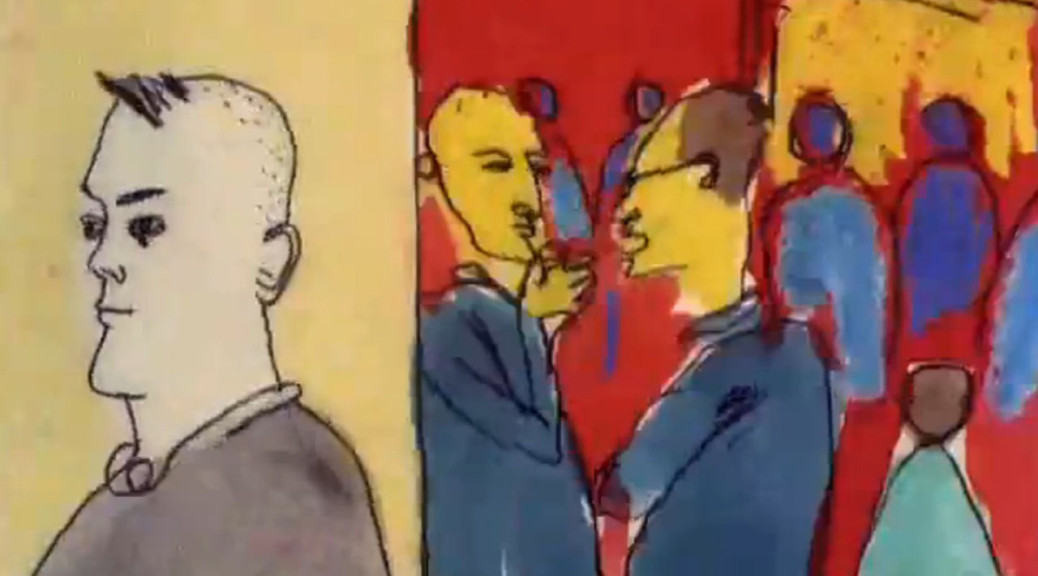
The Man with the Beautiful Eyes from Jonathan Hodgson on Vimeo. (2000)
Jonathan Hodgson and Illustrator Jonny Hannah. The Man with the Beautiful Eyes by Bukowski.
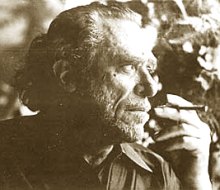
Charles Bukowski (wikimedia)
Nightclub from Jonathan Hodgson on Vimeo. (1983).
Feeling My Way from Jonathan Hodgson on Vimeo. (1997).
more animations at http://hodgsonfilms.tumblr.com/